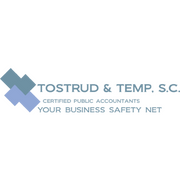4 Factors That Affect the Tax Liability of Selling a Business

If you’re selling your business, you want to get the best deal possible. However, certain tax laws can make it difficult for you to optimize your return on investment. Fortunately, with help from a trusted accountant, there are many ways you can structure the deal to improve your tax liability. Understanding the following factors can help.
What Tax Information to Consider When Selling Your Business
1. Entity Structure
The structure of your business will affect the way the sale is taxed. For example, sole proprietorships, partnerships, LLCs, and S corporations are all eligible for pass-through taxation, which allows them to avoid standard business taxes. This lowers their overall liability in an exchange. However, C corporations tend to incur double tax consequences since its unique ownership structure requires both the profits and the dividends are taxed.
2. Payment Schedule
 For some business owners, getting a full cash payment on a sale can be the most desirable option, as it’s simple and direct. But this kind of deal means that you will be responsible for taxes on the entire purchase price in a single year. Depending on the tax rate projections, this may not always produce a favorable outcome. If you’re flexible on payment, talk to a business tax accountant about ways that an installment plan can help spread out your liability and possibly help you achieve lower rates over the years.
For some business owners, getting a full cash payment on a sale can be the most desirable option, as it’s simple and direct. But this kind of deal means that you will be responsible for taxes on the entire purchase price in a single year. Depending on the tax rate projections, this may not always produce a favorable outcome. If you’re flexible on payment, talk to a business tax accountant about ways that an installment plan can help spread out your liability and possibly help you achieve lower rates over the years.
3. Asset Allocation
The assets sold during a business transaction—such as inventory or equipment—can be considered either capital gains or ordinary income. Assets with a capital gains classification are often taxed at a lower rate. However, due to the risk of depreciation, buyers may not always be willing to accept this option. Before the sale, work with your accountant to determine how every asset should be treated.
4. Stock Transfers
If you are selling your company to a larger corporate entity—such as in a merger—you may be able to qualify for a tax-deferred deal. This strategy applies when buyers exchange stocks to purchase an entity. While the seller will be responsible for taxes when these stocks are sold, the financial implications can vary depending on the future stock price.
Offering comprehensive business accounting services in the La Crosse, WI, area, Tostrud & Temp, S.C. is qualified to help you navigate the complicated tax aspects of any type of commercial sale. Staffed by experienced CPAs, this firm will carefully review all the details of the deal to help lower your tax liability. If you’re launching a company, this business tax accountant can also introduce you to strategies that can help you save money if you decide to sell at a later date. To learn more about these tax services, visit this team online. If you’d like to schedule an informative consultation, call (608) 784-8060.
About the Business
Have a question? Ask the experts!
Send your question

